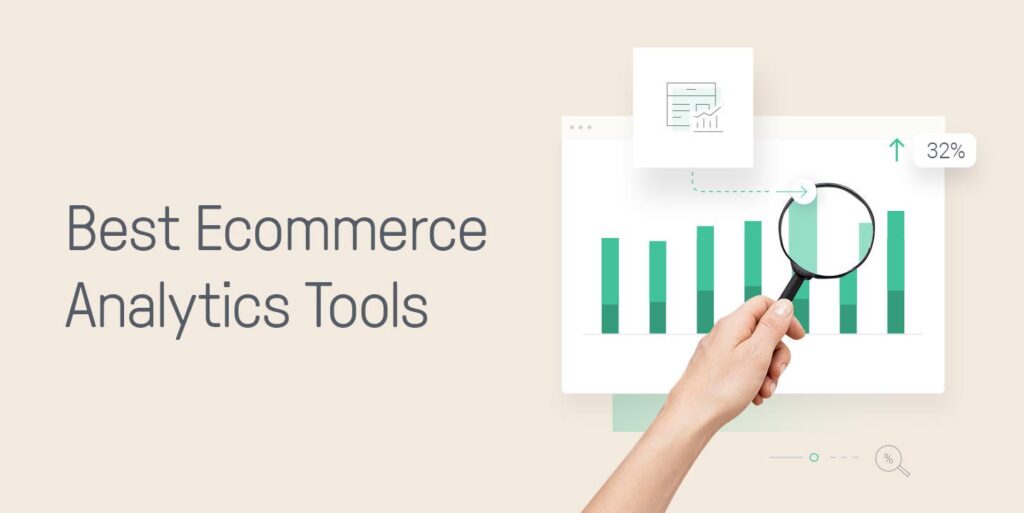In today’s digital landscape, having an e-commerce store isn’t enough—you need to understand your customers, track their behavior, and improve your website’s performance. Analytics tools are essential to this. The right analytics tool helps you create reports that provide valuable insights into your store’s performance. But with so many options, how do you choose the right one? Here are the key features for selecting an analytics tool for your e-commerce business.
1. User-Friendly Interface

A good analytics tool should be easy to navigate, especially if you’re not a tech expert. A user-friendly interface allows you to generate reports quickly without wasting time learning complicated software.
- Drag-and-Drop Reporting: Look for tools that allow you to easily drag and drop widgets, charts, and data to create custom reports.
- Customizable Dashboards: The tool should allow you to view key metrics at a glance, with dashboards that you can tailor to your needs.
Xperts Infuse offers expert advice on choosing tools with the best user-friendly interfaces.
2. Real-Time Data Tracking
For e-commerce stores, having real-time data is crucial. Your analytics tool should provide live tracking so you can monitor customer activity as it happens. This helps you respond faster to changes in website traffic, sales trends, and other important metrics.
- Live Updates: Make sure the tool updates its reports in real-time, so you can make decisions based on the latest data.
- Traffic Monitoring: You should be able to see where your website traffic is coming from and which products are most popular.
Xperts Infuse can help integrate real-time tracking tools into your e-commerce business.
3. Comprehensive Customer Behavior Insights

Understanding your customers’ behavior is key to optimizing your website and boosting sales. The analytics tool should provide in-depth insights into how customers interact with your store.
- Visitor Path Analysis: See how visitors navigate your website, from the moment they land to when they make a purchase.
- Cart Abandonment Tracking: Identify the stages where customers are dropping off, so you can optimize the checkout process.
Improve your customer journey with Xperts Infuse’s expertise in customer behavior analysis.
4. Sales and Conversion Tracking
One of the most important features of any e-commerce analytics tool is the ability to track sales and conversions. You need to know what’s working and what’s not to improve your ROI.
- Conversion Funnels: Track how many visitors move from browsing to purchasing, and where they drop off in the process.
- Sales Performance Reports: Monitor the performance of your products, identify best-sellers, and make data-driven decisions.
Let Xperts Infuse help you set up and manage conversion tracking for your e-commerce store.
5. Multi-Channel Attribution

E-commerce businesses often use multiple marketing channels to drive traffic, from paid ads to social media and email marketing. A good analytics tool should offer multi-channel attribution, allowing you to see which marketing efforts are driving the most conversions.
- Channel Performance Comparison: Compare the performance of different marketing channels, so you can allocate your budget effectively.
- Attribution Models: Choose from different attribution models to understand the impact of each channel on your sales.
Xperts Infuse can guide you on how to choose the right attribution model for your business.
6. Customizable Reporting
Every business has unique needs, so your analytics tool should allow you to create reports that suit your specific goals. Customizable reporting ensures that you can focus on the metrics that matter most to your e-commerce store.
- Custom Metrics: Create reports based on custom metrics that are most important to your business, such as lifetime customer value or average order size.
- Automated Reports: Set up automated reports to be delivered to your inbox on a daily, weekly, or monthly basis.
Xperts Infuse can help you set up automated, customized reports for your e-commerce business.
7. Integration with Other Tools
Your analytics tool should seamlessly integrate with other tools you’re using for e-commerce, such as your CRM, email marketing platform, or ad networks. This will allow you to have all your data in one place, making it easier to analyze.
- E-Commerce Platform Integration: Ensure the tool integrates with platforms like Shopify, WooCommerce, or Magento.
- Marketing Tools Integration: It should work well with tools like Google Analytics, Google Ads, and Facebook Ads.
Get help from Xperts Infuse to integrate the best analytics tools into your existing systems.
8. Mobile and App Analytics

If you run a mobile app or rely heavily on mobile traffic for your e-commerce store, you’ll need analytics tools that specialize in mobile tracking.
- Mobile Traffic Reports: Track how mobile users are interacting with your website or app.
- App Usage Tracking: Monitor how users interact with your mobile app, including downloads, in-app purchases, and retention rates.
Choosing the right analytics tool for your e-commerce store is crucial to understanding customer behavior, tracking sales, and optimizing marketing strategies. Look for features like a user-friendly interface, real-time tracking, comprehensive customer insights, and customizable reporting to ensure you get the most out of your data.
By partnering with Xperts Infuse, you can take your e-commerce analytics to the next level. Our team of experts can guide you through selecting and setting up the right tools to help you make data-driven decisions and grow your business.
Contact Xperts Infuse today for tailored solutions to enhance your e-commerce analytics strategy.

